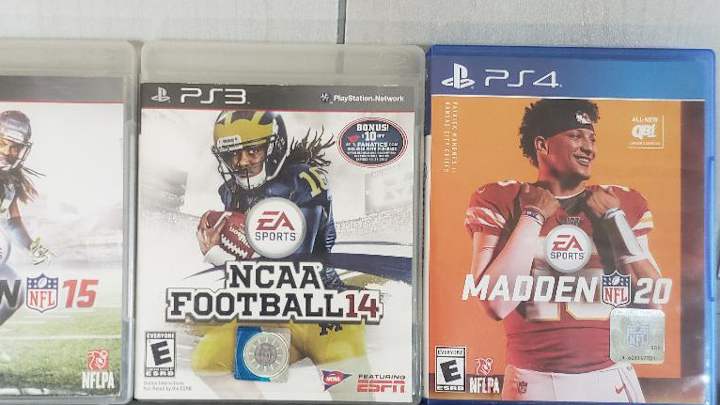Latest NCAA Ruling Opens Door to More Lawsuits

East Lansing, Mich.—The NCAA last week threw kerosene on a burning fire.
With the NCAA's announcement that it was moving forward and would allow players to be paid for their name and likeness, it also put restrictions in place that would hinder some of the most obvious ways to achieve that. The NCAA emphasized, "Reaffirming that student-athletes are students first and not employees of the university." While that statement was only thirteen words, it carried the impact of a nuclear bomb for the fans and the players.
Those words potentially eliminated a chance for the return of the popular EA Sports NCAA type games. They captivated the nation and poured millions into the coffers of the NCAA until a lawsuit ended it.
Ever since the video games went away, fans have clamored to bring them back. But by reaffirming the athletes are not employees, it killed any opportunity for a group licensing deal.
"If you are not an employee you can't unionize,” Jeff Michalowski of SMD Law told Spartan Nation. “Now, if the NCAA had called them employees, it would have opened up an entirely new can of worms for compensation and, of course, cost them amateur athlete status. The reason we have the Madden NFL game is the NFLPA (National Football League Players Association); that is the union of the players."
My colleague at Sports Illustrated, Pat Forde, put this in perspective. He spoke with Ahmad Nassar, the CEO of OneTeam Partners and wrote, "Instead of providing hope for the video game's resurrection, the report shoveled more dirt on its 6-year-old grave, enraging and stunning not just millions of game-play addicts but gaming executives like Nassar as well as college administrators. It's another NCAA roadblock preventing college players from earning income, especially unheralded athletes who are obscure enough not to reap substantial benefits from endorsements. Group licensing is a way for every athlete to get a piece of the money pie—and maybe the schools, too.
"Group licensing is the quickest and most efficient way fans can get access to products they know and love," says Nasser. "Group licensing powers that throughout pro sports. We want to bring that to the college ranks."
While I am not questioning the intention of the NCAA, its decision could create far more significant issues. One national championship-winning coach told Spartan Nation last night, "I think they mean well, but they are so afraid of lawsuits and bad media coverage that no one is thinking this through."
Then the coach offered up a recent conversation with one of his players: “He told me he wanted a Lexus and hoped he would get an endorsement deal from Lexus. I asked him about the taxes, insurance, and gas. He told me, 'They (dealer) will pay gas and insurance, and I will pay the taxes out of my Pell Grant.' I informed him about losing his Pell Grant if he made too much money. All he could say was, 'Oh. Maybe I don't want a Lexus.' I am not against guys getting paid, they should, but we can't do this thing half-ass."
Michalowski, a former college football player, said, "When you look at the LPGA, they do not have a union, they are all independent contractors. Similar to a guild so that they can do group licensing actions. But still, they are recognized while contractors as a form of employee. As an attorney, I understand why the NCAA takes this position. As a former college football player, the players are going to have to sue to get recognized as employees if the NCAA will not let them as a unit make a group licensing deal."
Sports Illustrated's legal analyst Michael McCann wrote, "It appears the NCAA will not allow college athletes to use a trade association as vehicle for negotiating with a video game publisher. For fans of college sports video games, that is disappointing news. However, the related subject matter is hardly straightforward. It's possible that a video game publisher could explore signing individual college players, presumably stars, to appear in video games. Whether the NCAA would agree, separately, to license its own intellectual property in such a game is uncertain. The report makes clear that endorsement deals involving players can't use uniforms, trademarks or other intellectual property of schools."
Because of the NCAA ruling, the absence of a group licensing deal will also hinder players from having player cards similar to baseball and football and mass memorabilia deals. If you think this one ruling cleared anything up, you are wrong. What it did was invite Pandora to a party that was already severely dysfunctional.
Tell us some of your thoughts on the NCAA's ruling and the growing controversy in the comment section below.
Want the latest breaking MSU news delivered straight to your email for FREE? Sign up for the DAILY Spartan Nation newsletter when you CLICK THE MAGAZINE ICON at the top left of the page or the FOLLOW button back on the main page. Don't miss any of the latest up to the second updates on Michigan State Sports when you follow on Twitter @HondoCarpenter & @JDeuceDullack
